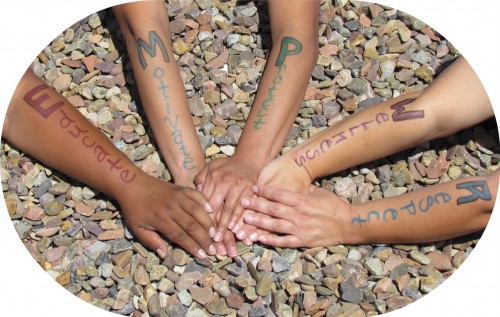
Individuals who struggle with alcohol or drug abuse problems are more likely to engage in risky sexual behavior. Often they don’t have skills to avoid risky sexual situations, especially when using alcohol and drugs. Furthermore, confidentiality concerns act as a barrier to help seeking and care. Brief interventions are shown to help people create personalized plans, reduce high-risk behavior and motivate them to get tested for sexually transmitted infections.
About EMPWR
EMPWR (Educate, Motivate, Protect, Wellness and Respect) is a brief 2-session sexual risk reduction program adapted for use in American Indian community-based settings. Through one-on-one sessions, EMPWR helps people identify and understand events, situations and behaviors that put them at risk for unprotected sex, alcohol and drug use. EMPWR teaches skills and helps people engage in alternative behaviors through a tailored risk reduction plan. EMPWR also motivates people to complete self-administered testing for sexually transmitted infections.
Evaluation
The EMPWR program was evaluated through a randomized controlled trial with 301 Native adults ages 18-55 in partnership with a tribal community in the Southwest. Results show EMPWR participants were more likely to complete STI self-screening than control participants (38.2% vs. 23.8%). EMPWR participants reported fewer unprotected sex acts in the past 3 months (9.3 vs. 16.0) and were more likely to refuse sex if their sexual partner wasn’t tested (23.6% vs. 12.4%).
These findings underscore the following:
- Engaging adults with a history of substance use to participate in tailored sexual risk reduction plans can increase rates of STI screening, critical in communities with high rates of STIs.
- Evidence-based interventions can be adapted for rural reservation-based settings to bridge important gaps in accessing sexual healthcare, such as geographic isolation and confidentiality concerns
- Brief interventions are cost-effective and can be administered by paraprofessionals such as community health representatives in non-clinic settings, which is important in the aftermath of COVID-19.
- Self-administered STI screening is a viable alternative to clinic-based screening that can increase STI screening rates, particularly among high priority subgroups and when access to in-person care may be limited, such as during the COVID-19 pandemic.
- Participants living in multi-generational households were more likely to complete both sessions of EMPWR. STI risk reduction programs such as EMPWR should harness the strength of families to ensure program attendance and optimize impacts in rural reservation contexts.
Funders and replication partners: This project has been supported by the Native American Research Center for Health of the National Institutes of Health.
Resources
Selected Publications
- Testing the efficacy of a brief sexual risk reduction intervention among high-risk AI adults
- Empowering our people: Predictors of retention in an STI risk reduction program
- Predictors of Sexually Transmitted Infection Positivity Among Substance-Using Native American Adults
- Impact of a Culturally Adapted Evidence-Based Intervention on STI Risks Among Native Americans
- ‘Empowering our people’ to address depression, violence, and sexual risk among Native Americans
